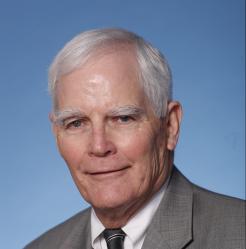As we are learning yet again, the campaign season produces wild claims about proposed programs that will magically solve the nation’s domestic problems. But how are voters to know if the claims are correct?
From Politico’s “Wrongometer” and The Washington Post’s “Pinocchio test” to PolitiFact’s “Pants on Fire!” rulings, trusted media sources sort out fact from political fiction — an especially vital service on debate nights, as we just witnessed. As the late Sen. Daniel Moynihan famously said, “Everyone is entitled to his own opinion, but not to his own facts.”
But the emphasis on facts must extend beyond campaign season. While most voters would say that America’s deepening political polarization has been the driving force in Washington, we have observed a more accurate, hopeful, and perhaps unexpected phenomenon: the growing emphasis on evidence-based policymaking.
“Evidence-based policy” may not fit neatly into headlines or roll off our current candidates’ tongues, but it’s an important concept that concerns all Americans, not just policy wonks. Most voters would and should be shocked to know how few federal programs are, in fact, tested to see if they work. Too often, policymakers have feared research, presuming that the collection and analysis of data on the performance of their favorite government programs would risk having them declared failures and be used to justify killing them. But the goal of policy research is deeper than a simple thumbs-up or thumbs-down. Rigorous, objective research is a powerful tool that can help policymakers decide — based on the best evidence available, not just political interests — how to develop and refine programs to improve society’s well-being.
To best serve the public good, it’s imperative that our next president expand the culture of evidence that, perhaps surprisingly, has been growing as rapidly in recent years as the partisanship that inhibits good decision-making — or, sometimes, any decision-making at all. Today, more and more government decisions are rooted in facts uncovered by research, and more and more legislation requires the collection of facts about how programs work. For example, in 2002 the Bush administration established the Institute of Education Sciences, an independent, nonpartisan arm of the Department of Education, to “substantially strengthen the scientific basis” for federal education policy. The institute’s What Works Clearinghouse is a widely used resource for reviews and reports on rigorous studies that help policymakers and educators understand the effectiveness of strategies and programs being implemented in schools across the country.
Similarly, the Obama administration has expanded the emphasis on evidence. The departments of Education, Labor, and Health and Human Services are among the agencies that have been at the forefront of investing in research and using it to improve their programs. The Office of Management and Budget provides guidance to federal agencies on how to use evidence to create a “smarter, more innovative, and more accountable government.” And in his February message to Congress accompanying his final annual budget proposal, President Obama urged policymakers to embrace research “so the federal government can do more of what works and stop doing what does not.”
One month later, President Obama signed a landmark bipartisan act sponsored by House Speaker Paul Ryan (R-WI) and Sen. Patty Murray (D-WA) to create the Commission on Evidence-Based Policymaking. The commission includes 15 members — experts from academia, government, and the private sector — appointed by the president and Congressional leaders from both parties. The commission convened in July and is now working to determine how to increase the use of data and evidence in federal policymaking, especially by making the oceans of federal data available to researchers while insuring individual privacy.
Yes, there’s been progress, but we still have a long way to go. Moneyball for Government, a bipartisan group of current and former government insiders, has argued that the vast majority of federal government spending still is not backed by current evidence. Instead, policymakers largely rely on hunches, guesses, wishes, or outdated information; many of their policy decisions might fail a fact-checking test.
With the work of the Commission and the inauguration of a new president, the months ahead will be an important time for expanding the use of evidence in making policy decisions. A greater commitment to evidence-based policymaking in Washington, combined with new sources of data as well as technology — which makes data collection and analysis easier and faster than ever — will lead us to a brighter future.





Commentary
Op-edThe next president should stick to the facts
October 14, 2016